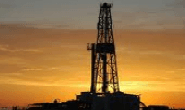Market Data

March 2, 2021
Trade Groups Warming to the Idea of a Carbon Border Tax
Written by Tim Triplett
How close is the United States to adopting some form of carbon border tax to address climate change? What seemed highly unlikely one administration ago is now even supported by the likes of the trade groups representing the American oil and steel industries.
The Wall Street Journal reported this week that the powerful American Petroleum Institute is “poised to embrace putting a price on carbon emissions,” a reversal of the API’s past position.
The API and its membership continue to “discuss and consider” carbon pricing among other policy solutions to reduce emissions and reach the ambitions of the Paris Agreement, a source told Steel Market Update.
The burning of fossil fuels such as oil and gasoline in automotive and coal used in power generation and steelmaking are major contributors to greenhouse gas emissions around the world. Executives from the trade groups representing American steel producers emphasize that the United States already produces the cleanest steel in the world, and any carbon trading scheme should level the playing field with foreign mills that import to the U.S.
“American steelmakers lead the way in producing sustainable steel with low CO2 emissions. In fact, the United States has the lowest CO2 intensity of any major steel producing country,” said Philip Bell, president of the Steel Manufacturers Association, whose members are primarily lower-emission EAF mills. “It is our hope that any climate legislation or carbon pricing schemes considered by the administration have robust and impactful border adjustment provisions. Imported steel and other manufactured goods should meet the additional environmental and financial requirements associated with domestically made products.”
The American Iron and Steel Institute (AISI), which represents integrated steel producers, said it would support a possible border adjustment tax as long as it does not penalize American steel.
“The American steel industry is the cleanest and most energy efficient of the leading steel industries in the world. Of the seven largest steel producing countries, the U.S industry has the lowest CO2 emissions intensity per ton of steel produced and the lowest energy intensity,” said AISI President and CEO Kevin Dempsey. “By contrast, Chinese steel production results in CO2 emissions that are almost 2.5 times higher, and uses 50 percent more energy, compared to the U.S. per ton of steel produced.
“We support climate policies that promote, not penalize, American steel. Government policies should advance the American steel industry’s competitiveness and recognize our role as a sustainability solutions-provider—technologies like wind turbines, solar panels and tidal renewable energy systems all depend on steel. When Congress considers policies designed to reduce carbon emissions, the American steel industry thinks the focus should be on establishing a strong and effective border adjustment mechanism to ensure that imported energy-intensive goods bear the same environmental compliance costs as competing U.S.-made goods. Otherwise, higher environmental standards in the United States will simply result in shifting the production of steel to areas of the world with much higher emissions levels. An effective carbon border adjustment mechanism is essential to ensuring that any CO2 reduction policies actually reduce overall global emissions, rather than simply promote so-called ‘carbon leakage’.”
In a new trade agenda delivered to Congress this week, the U.S. Trade Representative said the Biden administration is considering imposing a carbon border tax. Endorsement of carbon pricing by steel and oil industry trade groups, however qualified, is clear evidence of the changing political climate in Washington in regard to climate change.







